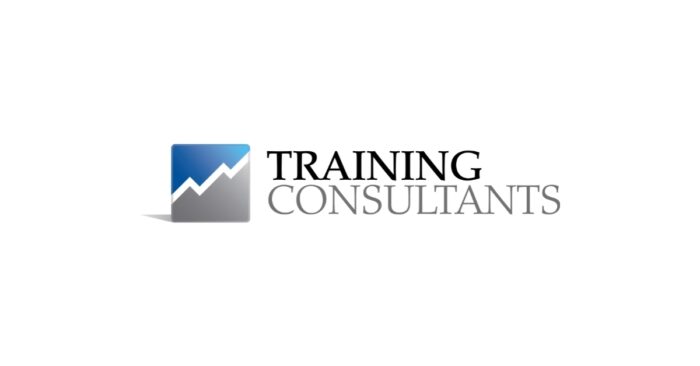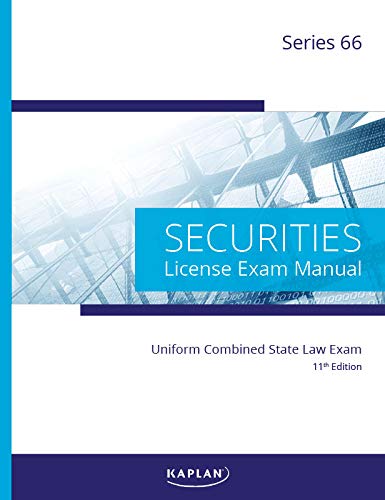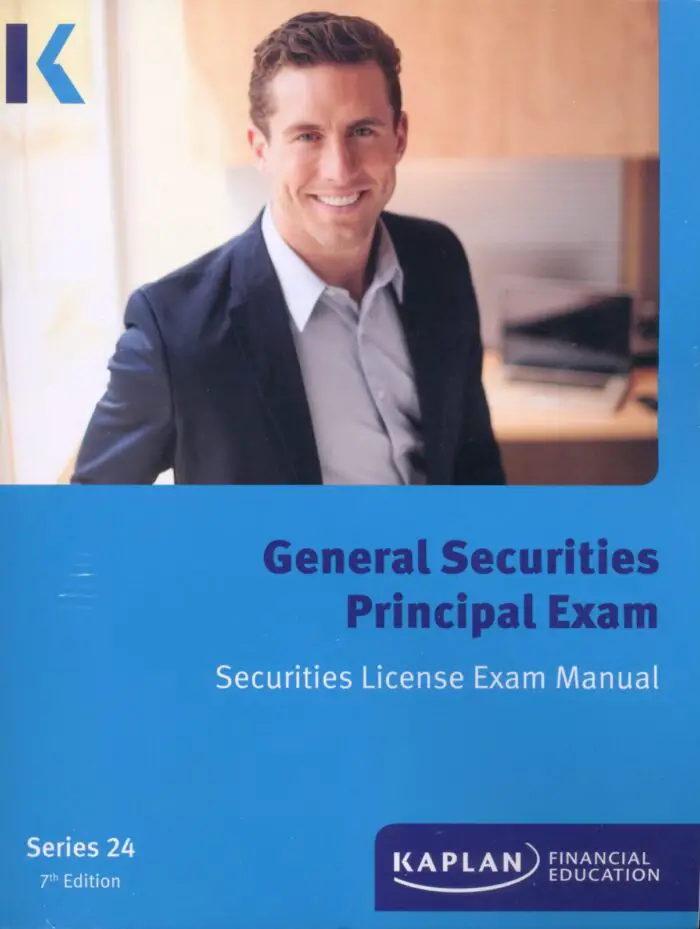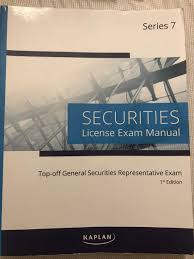How to Pass The Series 7 Exam, Pass Rate, Exam Reviews, Study Guides, and My Best Practices Tips To Pass The Series 7 on Your First Shot!
Passing the series 7 exam is surely no mean feat, with what I believe to be somewhere around a 50% pass rate, not too many more people pass the Series 7 exam than do pass the CPA exams (Certified Public Accounting Exam,) widely believed to be the most difficult professional exam (which I do not necessarily believe, I mean….engineering? Come on.) On that note, I’ve decided to compile a blog post for exactly how you can pass the Series 7 Exam, how I passed the Series 7 Exam on my first attempt, and of some of the journey that occurred while I was waiting to pass the Series 7 exam. The following blog post will show you how to pass the Series 7 exam, will walk through how to properly study for the exam and how to outline your study schedule, will mark which topics to focus on, and will walk through how you can ace the Series 7 exam on the first try! For more information, subscribe to our blog for daily blog posts, and comment down below with your thoughts and opinions on the article and we’ll get back to you within one business day with a response.
Other Major Licensing Exams in the World of Wealth Management and Finance Include the Following:
The SIE Exam
The Series 7 Exam
The Series 66 Exam

The Series 6 Exam
The Series 3 Exam (Commodities)
The Series 9 Exam
The Series 10 Exam (The Series 9/10 Combine together to make the 9/10 License)
The Series 24 Exam
The Series 53
The Series 4 Exam
The CFP Examination
The CPA Exams
And a host of other powerful and accomplished financial and accounting professional licenses. Read on or comment down below with any questions or comments that you may have.
| Related Posts |
|---|
How to Pass The Series 7 Exam In Stride, and Why My Journey Towards Passing The Series 7 Was a Bumpy One
I’ll start off with how my initial banking career began, as I had just gotten laid off from my first job as a Financial Analyst at an internet start-up due to restructuring, and was seeking a position in the banking sector. I came across a bank known as UBS, which at the time I had believed to be a small,, local bank (pros of being 22 with no experience in the world whatsoever). I soon found out that the bank has $2.5 Trillion in Assets Under Management, and is right up there with Goldman Sachs, JP Morgan, Morgan Stanley, and the likes of the major banks in the world of Finance. Fast forward several weeks later, and I’m sitting in the interview room of the bank, speaking with the Branch Manager of the local region. We have a good conversation, and I leave the room feeling optimistic about the interview.
Second interview comes, the branch manager asks me to go in for the interview at 7:30AM! I showed up at the Florida office at 7:15AM, both confident and shaking in my boots at the same time. We have a good conversation, I leave the room feeling confident, but still decide to head back to my computer that day and continue applying for jobs. 12PM that day, I get a call from the branch manager offering me the job! Background check goes through clean, and due to a handful of problems with the division, it takes upwards of 2+ months for me to actually begin the job! I visibly remember pacing around my apartment, as I actually had 2 offers on the table (one from another company as a Financial Analyst….they later went bankrupt due to the COVID-19 Pandemic….guess I made the right choice in waiting.)
Move past Christmas and New Years, and I finally get a start date in early January. At this point, the SIE Exam had been mentioned in my interview, and with a two month waiting period, I had plenty of time to begin studying for this thing. I purchased an ExamZone study guide manual and I began to chip away at this monster of a finance exam. I begin to learn options, futures, margins, syndicates, municipal bonds, treasury bond types, etc.
I already had a Bachelor’s Degree in Finance, so I was very familiar with the world of Finance, and I also had worked as a Financial Analyst for a year prior, so I was no stranger to the world of Finance, Excel Spreadsheets, numbers and the equity markets, yet this exam was still a monster of an exam. The book was 500+ pages, and was on mostly dry topics like Options, the numbers behind Margins, etc. etc. Eventually, I was able to make it through the entire book (spending some of the holidays with family helped me through a lot of this, as I was so bored that I actually WANTED to study Finance,) and with making it through the book, had already started practice testing with some mock practice tests from ExamZone.
Why Passing The SIE Is Sometimes The Hardest Part, and How to Pass The Pre-Series 7 On Your First Time Also
With this, I got the Kaplan SIE Book also, as well as the Kaplan practice testing, which I feel is far superior to ExamZone’s practice testing, even if their textbook is not necessarily, and began to read and practice test with this version of the content, which I’ll admit was a tad easier. I began taking practice tests in my apartment study room, and continued practice testing with both the Kaplan Learn practice exams, and the Exam Zone practice tests until I hit the 80-85% mark pretty consistently on the exams. From here, I was ready to take the SIE Exam, however I was delayed for over three weeks for when I would’ve liked to have taken the exam in that my U4 form still had not been submitted to my banks division.
Finally, as I am able to take the exam, I finally sit down in the testing room, and I basically am completely blanked out in the exam. Aside from being mildly startled by the TSA-level full body scan, the additional fingerprinting that I had to undergo, and the hot girl that was nervous about the exam that would not stop talking to me (it was kinda fun actually;) I was visibly nervous when attempting my first ten questions or so of the exam, and to make matters worse, the first ten questions are all SEC regulations! What is regulation D? What is Regulation T? What is Rule 144A? etc. etc. The hardest types of questions in the exam, at this point my heart is starting to race and I am visibly nervous about the exam. I push through the 85 question multiple choice test however, and I figured I had to have had about 60-65 questions correct, with only a 70% needed to pass. I pressed submit, and low and behold, I had passed the exam! On to the series 7, a much more arduous foe indeed.
Topics on The Series 7 Exam, and What Topics You Should Focus on To Ace The Exam
Fast forward to my series 7 Exam prep, and it wasn’t exactly as smooth as my SIE Exam. I finished the SIE on February 10th, right now it is the beginning of June and I have just now passed the test! I was scheduled to take the test on March 20th, and was 100% ready to go for testing on this date. From here, due to the ongoing COVID-19 pandemic, it was postponed to April 22nd, and then postponed again due to the Coronavirus pandemic to June 2nd, I just passed several days ago, and am so glad that I did! Retaining all of that information for nearly 4 months is a very difficult test indeed, and while initially I thought that my boss wasn’t exactly hitting the nail on the head when he said that I would need to take the exam within 4-6 weeks, he was actually right, in that it is IMPOSSIBLE to retain all of that information for that long. There are so many nitpicky type things, such as Municipal bond regulations, Margins, etc. that are hard to retain for several weeks, let alone months on end, it made the exam significantly harder, and honestly after taking this bad boy, I’m imagining the Series 66 being significantly easier than the 7, but only time will tell.
So that was my series 7 journey, and on that note, here are the topics for the exam, and the primary topics that you should really focus on:
- Correspondence, Retail Communications, and Communications With Clients – I had something of a background in correspondence when I was studying for this version of the exam in that I was helping to review and scan and email it to my bosses nearly every single day that I was in the office for my 9 to 5 job. This part of the exam, because of this, actually clicked relatively quickly, in that it was pretty easy to discern, having looked at so much correspondence in the past, that learning that correspondence was communication was client communications to <10 people vs. the <25 people that is retail communication, wasn’t too hard to memorize.
- Opening Retirement Accounts for Customers – This chapter was another fun one of mine, and is something you should definitely get down well for the exam, learning about Traditional IRA’s, Roth IRA’s, etc. will help you out a ton during your career in wealth management, and is also a good thing to know generally for maximizing the potential of your own personal finances.
- Mutual Funds and Suitability – A HUGE part of the exam. Suitability in particular, is a big part, and is one of my favorites. I’d say that out of this section on the exam, it is maybe 50% suitability (should you sell a 94 year old woman a Variable Annuity, etc.?) and 50% Mutual Funds, how they work, closed end vs open end mutual funds, mutual fund fees, etc. I tend to be better at Suitability than mutual funds, but I know enough about mutual funds to be dangerous.
- Options – Another huge part of the exam, I’d say maybe 20% of the test or more is options. Understand break even point, minimum and maximum loss, and minimum and maximum gain, how a put option and a call option work (right to sell and right to buy), how options contracts work in general in blocks of 100 etc. If anyone needs help with options, I LOVE options, and am VERY good at them, comment down below and let me know if you want a hand with any call options or straddles!
- Direct Participation Programs – DPP’s are a different animal entirely and I actually got pretty good at these. For the most part, the exam focuses on how these are high risk, talks a lot about LP’s (Limited Partnerships) alongside DPP’s and mainly focuses on Oil and Gas Direct Participation Programs, Oil and Gas Exploratory Programs, Real Estate DPP’s, and the like.
- Municipal Bond Securities – HATED these, absolutely hated Municipal bonds, however I got very functional at them. I swear Municipal bonds might feel like they are 50% of the exam sometimes, even though they are only really like 20-25% of the test or something like that. It takes more than just know about the tax consequences or advantages of Municipal Bond Securities, in that there is a ton of stuff about the Syndicate desk, how Underwriters and Investment banks, as well as bond counsel and the legal consequences behind bonds work, etc etc. I consider myself very very good at taxes for a FINANCE guy, (not an accountant obviously) and Muni bonds still kick my ass every single time, so it’s not enough to just know about the tax consequences.
- Margin Accounts – This one was really a pain to get through my head, but once I got it, I really got it. It’s all about the SMA account (Special Memorandum Account,) how margins work, what a Margin Call is, etc. very important to know for the exam.
- Customer’s Purchase and Sales Instructions, Legal Dispute Resolutions – I would say that Chapter 1, and this Chapter, Chapter 8, regarding Arbitration etc. Are among the least important concepts and chapters to know for the exam, as they are not tested quite as frequently. Have a decent framework with these, read the chapters and understand the gist of them, but if you know Chapter 2-7 extremely well, which is retirement accounts, suitability and mutual funds, options, Direct Participation Programs and Limited Partnerships, Municipal Bonds and Margins like the back of your hand, you’ll be hitting 85’s on those practice tests in no time, and will no doubt pass the series 7 on your first attempt.
How to Pass The Series 7 Exam in Just 4 Weeks of Studying, and Why 4-6 Weeks of Study Time is an Aggressive, Yet Best-Case Approach for Passing the Series 7 Exam
More on how to pass the series 7 exam, or better yet how to pass the series 7 on your FIRST ATTEMPT, I would say that 4-6 weeks, with maybe 150-200 hours of total study time in that span of time (yes I know that’s a very aggressive pace, at 4-5 hours of study everyday, but hear me out here) is the ideal amount of time to study. The reason why is that, personally, I don’t think that you can retain that much information over that long of a span of time, and what I’m finding with my Series 7 Exam getting delayed so many times, is that the longer you wait, the more practice questions you run out of, the more you forget stuff, the more you have problems with overlapping information, etc. etc. The tougher this exam becomes. And remember, there is only the topics described in the book on the test, don’t start studying accounting or stuff like the dot com bubble to try and over prepare.
What My Experience Taking a Prometric Exam Looked Like The First Time, What To Expect Your First Time in a Testing Center
I still remember that day like it was yesterday. For some reason, my exam was scheduled for 7:30AM, and so I woke up at 4:45AM, ate breakfast, reviewed the options section of the SIE Exam, and the options suitability chain, and was sitting in the exam testing room by 7:15AM. I still remember the beautiful blonde girl that was in my exam testing room with me, as she was almost flirtatious and was putting her hand on my shoulder etc. and was being extremely friendly, because she was so visibly nervous for the exam, whereas I was so cocky for the exam since I had been studying for so long due to me waiting to for my employment to start. Once I get to the testing room, there is a metal detector, and they had me lift my pant legs up, I guess to make sure I didn’t have a textbook in my thigh? Past this, there was a fingerprint scan, a photo, paperwork to sign, a briefing, and then, they made me put my phone, wallet and keys into a locker. Here’s what the lockers looked like in the exam room, they are tricky to open, and they give you a key that you may keep on you during the exam, I’m showing you this picture because I think every single thing that you know about the exam room will give you an added advantage, in that it will feel more familiar and will make you feel more comfortable once you’re in the exam room.

So that’s what the lockers looked like in the exam room. Once you put all your stuff in the lockers, the receptionist will walk you back to your desk, and then the computer gives you like a five minute or so briefing before you finally can begin the test. Don’t get flustered if you blank out on the first ten questions or so, in that I’ve heard and experienced that the first 10-25 questions on each one of these FINRA Prometric exams are typically the hardest, and that after that the exam questions tend to be business as usual. So whatever the case may be, you’re already in the exam room, push THE HECK through, and take home the meat, ie. your bonus or raise that you get after passing the Series 7 Exam, and the dopamine boost from knowing that, in the words of Jordan Peterson, you slayed the Dragon and took home the gold.
How The Series 7 Compares to the SIE Exam, And The Series 66 Exam
Generally speaking, the Series 7 exam is harder than the SIE Exam, by a lot, but is easier than the Series 66 Exam, by a lot. The chatter in the office currently, and in the past on these is that the SIE Exam is the baby exam, it is your initiation into the world of Financial Services so to speak. From here, the Series 7 Exam is the kind’ve arrow in your quiver that shows that you’re serious about Financial Services, that you’re smart, your dedicated, and that you’re ready to win. From here, the Series 66 Exam is almost like your graduation ceremony, with the Series 9/10 Exams, your management license exams, serving as your what would essentially be a second degree black belt in your Martial Art of Choice. To compare these exams to the belt levels in Jiu Jitsu:
SIE Exam – First Stripe White Belt, you’ve accomplished something and are on the board
Series 7 Exam – Blue Belt in BJJ
Series 66 Exam – Purple Belt in BJJ
Series 9/10 Exam – Brazilian Jiu Jitsu Brown Belt
Series 24 Exam – Brazilian Jiu Jitsu Black Belt
Makes a nice little analogy right there for any die hard martial artists, martial arts fans, or UFC fans that are reading this blog post.
Final Thoughts on How to Pass The Series 7 Exam On Your First Attempt, and Why Consistency is Absolutely Key!
And to close out this 3000 word, monster of a blog post, I’ll say this. If you are studying for the SIE Exam, the Series 7 Exam, The Series 66 Exam, The CPA exam, or what have you, and are struggling or getting discouraged, don’t. Drop the emotions, push forward, and don’t stop until you’ve hit your goal. These exams are hard, they are difficult, but they are not impossible, and they are OBTAINABLE (well….maybe not the CPA exam but that’s a different story entirely;) In the world of financial services, having these licenses can make you extremely valuable, and shows that you are serious about the world of Finance and investments, so my advice to you would be to get them at all costs. If you have any questions for someone that has passed the SIE Exam and the Series 7 Exam, and for someone that is currently studying for the Series 66 Exam and has a Double Major BA in Accounting/Finance, be sure to comment down below with your thoughts and opinions on the article, and we’ll back to you within one business day with a response. And as always, be sure to subscribe!
Cheers!
Sources:
https://finance.fandom.com/wiki/Firm_Foundation_Theory
https://finance.fandom.com/wiki/Castle-in-the-Air_Theory
https://money.cnn.com/data/markets/
Disclaimer: The opinions and documentation contained within this article and on this blog are the sole property of inflationhedging.com and are not to be copyrighted or reproduced in any manner, else legal action within the rights of the United States legal code could be use to obtain recompense. All articles and blog posts are the sole opinions of the writers of the blog, and are not necessarily in line with what exactly will work for you, you should consult a CPA, Tax Professional, or Financial Professional to determine what exact financial needs are in line with your interests. Also, from time to time, certain links on this website will be used to generate affiliate commissions, in order to support the health and growth of our website, health and business.











[…] https://inflationhedging.com/how-to-pass-the-series-7-exam/ […]
[…] are a smart choice if you are trying to save money, limit yourself if you are frequently spending money over budget, or just want a safer alternative to investing in times of market volatility. In this […]
[…] Previous How to Conduct A Monte Carlo Analysis in Excel […]
[…] https://inflationhedging.com/how-to-pass-the-series-7-exam […]
[…] https://inflationhedging.com/how-to-pass-the-series-7-exam […]
[…] So, for the sake of convenience, in this article we’ll be taking a look at different ways to invest and save your money that will get you returns greater than 3%. Now in this guide on how to beat inflation will be […]
[…] cash for everything – When you pay cash for everything, the statistics indicate that you actually […]
[…] short-term investments. Benefits of diversifying include Peace of Mind, better returns on average, increased investment experience, and long term financial […]
[…] a very strong knowledge framework for things like learning the skills needed to pass the SIE or Series 7 exams, or even heading towards the CPA designation in that you better understand things like Free Cash […]
[…] but watching his Youtube channel day in and day out, coupled with working full time towards my Series 7 and working full time at a bank, as well as having a strong interest in Finance and having a BA in […]
[…] the question of what is a variable annuity, and will look at some of the pros and cons of holding a Variable Annuity, as well as the reasons why, for the average investor, buying Variable Annuities is really […]
[…] https://inflationhedging.com/how-to-pass-the-series-7-exam/ […]
[…] https://inflationhedging.com/how-to-pass-the-series-7-exam […]